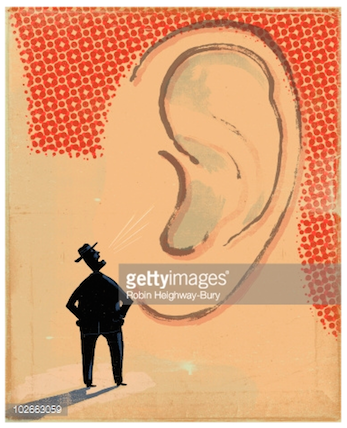
I read an interesting study the other day on confirmation bias and how our minds pay more attention, way more attention to stories that re-inforce our biases.
We encounter a lot of stories in our daily lives whether through the news, friends, families, overheard on the bus/train, stories are all around us but we don’t remember all of them because we don’t pay the same amount of attention to all of them.
So which ones do we pay attention to and why? Well according to research we pay attention to those that are obviously more compelling and that is based on a combination of variables – the structure, the characters, the storyteller but one of the other variables is that we pay attention to those stories that reinforce our bias.
E.g. We have the TV playing in the background and there are multiple stories being told some are in ads, some are in news bites but once in a while we get pulled away from the work we are doing and notice a particular story.
This could be confirmation bias – our mind is actively searching for content which will validate our world view. E.g. If we believe Black-on-Black crime is a real thing and a major cause for the high levels of violence in the black community as opposed to other indicators such as income, family structure, living conditions, neighborhood etc. then we are drawn to stories that repeat that narrative. Whereas a story about white crime in a low income similar scenario is not as readily picked up and remembered by our minds.
This leads to a situation where our mind has a lot of stories to re-inforce our bias and few to challenge them, so we become more and more biased to where it becomes our opinion and slowly our belief.
This can be seen in the current cable news environment. Though there may be stories that work against a particular network’s stance they are not given airtime because they do not reinforce the bias of the viewers. Biases which the channel might have encouraged and nurtured in the first place. Also there is the fact that if a channel runs too many stories that challenge the biases of its viewers it loses credibility with them and is seen as not reporting the “right” news. If you are a FOX viewer, you want to see stories that tell you there is an immigrant epidemic so stories about immigrants becoming successful through hard work or immigrants not on the government social welfare programs lessens your faith in the channel. Similarly stories that highlight how diversity benefits america and stories of how new immigrants have helped the economy these stories though anecdotal (and most news stories are) will disengage the channels audience and they will look for other news sources. The same can be said of MSNBC or left leaning news.
This has lead to an environment where the news channels instead of educating their viewers are enabling them. So not only do advertisers have an influence but the viewers biases have a profound impact too the content because channels operate on TRP’s and so they give the viewers what they think they want based on their customer profiles and biases.
The problem here is that editors choose news stories based on probable viewership numbers and viewers wants news that enforces or validates their world view. It’s a vicious cycle that makes us all more polarized, biased and discourages independent thinking along with making us less informed about the true state of things.
Also how are we to grow as a society if the sources we look to for truth, pander to our lowest base instincts and enable our biases further for the sake of revenue. I do not have a solution – apart from check your biases, analyze every bit of information and engage in independent thinking.


